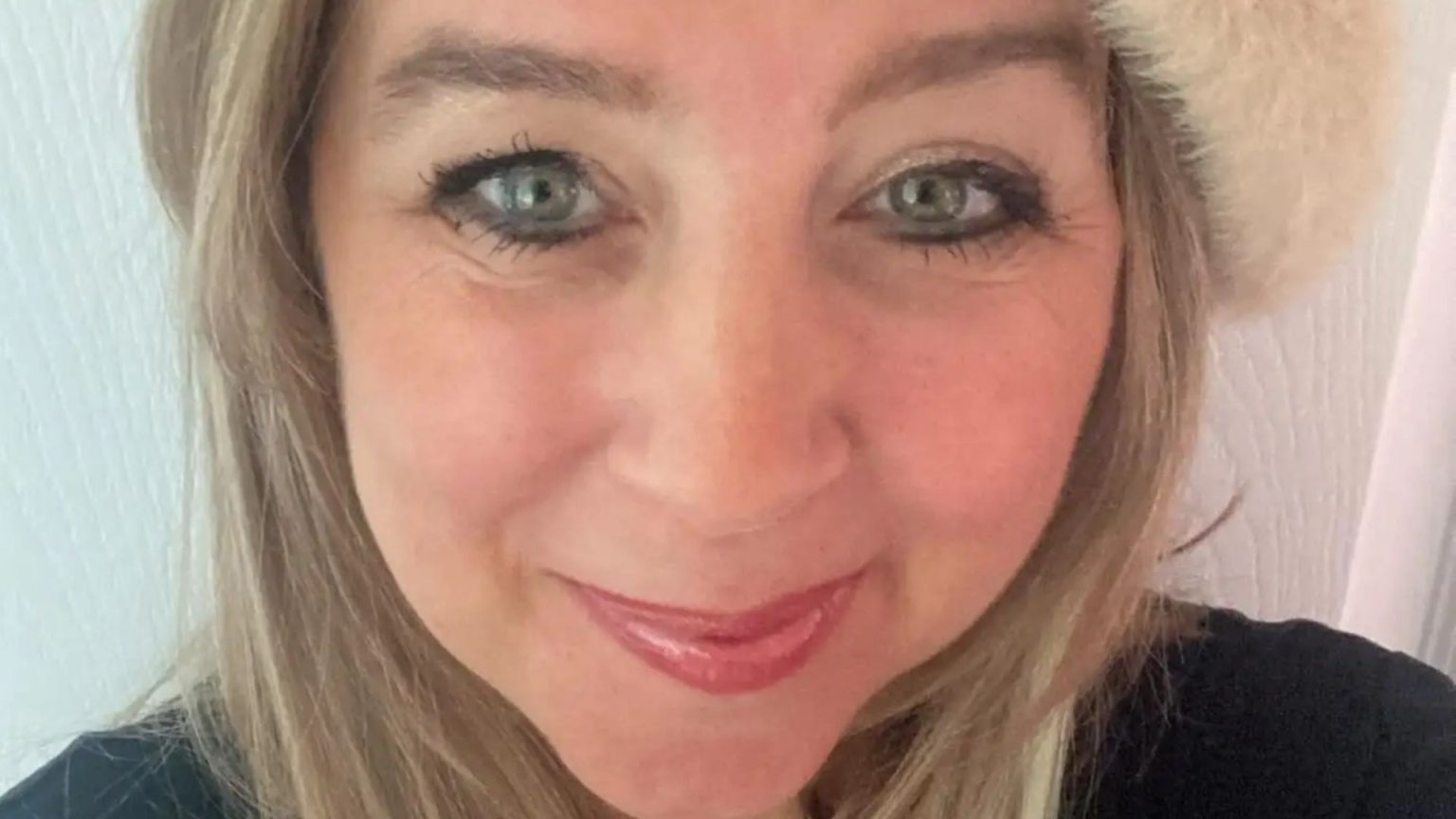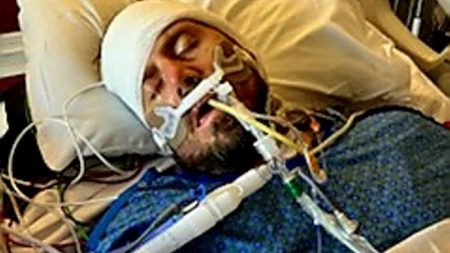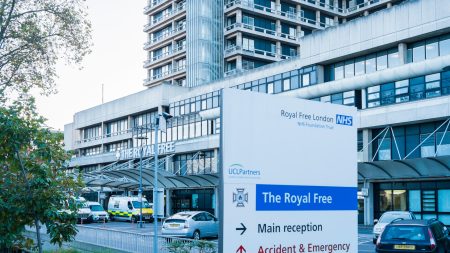Harriet Annabelle Ward, a 51-year-old singer from Bristol, experienced a life-altering event when a silently growing brain tumor, a meningioma, nearly claimed her life. For a decade, the tumor had remained undetected, manifesting only in occasional dizziness and fatigue, which Harriet attributed to stress. Even a hospital examination two years prior to her diagnosis failed to reveal the growing threat within her brain. Active and healthy, Harriet continued her life until 2021, when a drastic decline in her health signaled a serious underlying issue. She experienced difficulty forming sentences, persistent exhaustion, frequent dizziness, headaches, and a bloodshot eye. Despite three visits to her GP, her symptoms were consistently dismissed as stress-related. It wasn’t until severe memory loss prompted a call to NHS 111 and a subsequent rush to A&E that the truth was finally revealed through an MRI scan: a 2.8-inch meningioma occupying the left side of her brain.
Doctors informed Harriet that the tumor’s pressure was critically high, impairing her cognitive and speech functions, and that without immediate intervention, she would likely die in her sleep. Faced with this shocking prognosis, Harriet remained remarkably focused and determined to survive. Her vibrant and active life before the diagnosis fueled her desire to recover and return home to her family. The diagnosis of a grade two meningioma, a common type of brain tumor, suggested that the growth had been present for 10 to 15 years. Meningiomas are relatively rare, affecting approximately one in 40,000 individuals in the UK annually, with survival rates varying greatly depending on various factors.
Harriet’s husband was given the devastating news that she had only a week to live. Emergency surgery to remove the tumor was the only option to save her life. The thought of leaving behind her three children, aged five, 10, and 15, filled Harriet with terror. The uncertainty of the surgery weighed heavily on her as she prepared for the procedure, expressing her love to family and friends and having her husband sign the necessary death forms. In a poignant moment before being anesthetized, she pleaded with the doctors, expressing her deepest desire to see her children again. The 14-hour surgery was a success, a testament to medical expertise and Harriet’s resilience.
Awakening from the operation, Harriet’s relief was immeasurable. The left side of her face was severely swollen and bruised, a testament to the invasive procedure. Initially hesitant to document her appearance, she eventually began taking photos a few weeks post-op as the swelling subsided. The journey to recovery began, a gradual process of healing and regaining strength, both physically and emotionally. Returning home to her family marked a significant milestone, allowing her to focus on rebuilding her life and cherishing the precious time with her children, Amaryllis, Islah, and Noah. The near-death experience profoundly impacted Harriet, giving her a newfound appreciation for life and family.
Harriet’s experience inspired her to use her musical talents for a greater purpose. Collaborating with 22 other artists, she recorded an album titled “Bristol Music World 2024” to raise funds for Southmead Hospital, where she received her life-saving treatment. Music became her therapeutic outlet, a source of happiness, healing, and a way to express her gratitude for the gift of life. Her story serves as a powerful reminder of the importance of early detection and the resilience of the human spirit in the face of adversity. The album stands as a testament to her journey and a symbol of hope for others facing similar challenges.
Harriet’s case highlights the insidious nature of brain tumors, which can often grow silently for years before causing noticeable symptoms. While her specific case was a meningioma, a generally slow-growing and often benign type of tumor, the potential for serious consequences underscores the importance of seeking medical attention for persistent or unusual symptoms. Brain tumors can cause a wide range of symptoms, including headaches, seizures, nausea, memory problems, personality changes, weakness or paralysis, and vision or speech difficulties. Experiences like Harriet’s emphasize the vital role of medical professionals in recognizing and diagnosing these potentially life-threatening conditions and the critical need for continued research and advancement in treatment options. The emotional toll on patients and their families further underscores the need for comprehensive support systems and resources.











